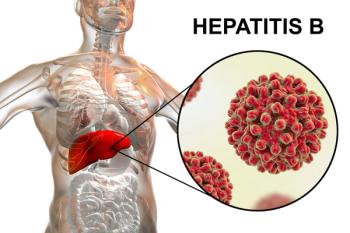
Latest Research: COVID-19 Therapies
At the start of the pandemic, treatments for COVID-19 were limited, with only supportive care and off-label use available. As data have become available for both evidence-based treatments and randomized controlled trials, health care providers have a more robust slate of tools at their fingertips to treat COVID-19.
In conjunction with the Infectious Diseases Society of America (IDSA) Idea network, the IDSA Antimicrobial Stewardship Centers for Excellence, and the Society for Healthcare Epidemiology, a group of researchers from the University of Illinois at Chicago developed a survey1 (responses n=78) to evaluate the use of a variety of common medications throughout each wave of the pandemic. Across each wave, use of hydroxychloroquine declined by 96% and the use of convalescent plasma declined by 85%, although the decline of the latter was more gradual with each wave. Before data emerged supporting its use, baricitinib was used in 42% of hospitals; after data emerged, there was a 90% increase in the use of baricitinib therapies.
“Overall, our survey shows a gap between evidence and practice,” the researchers concluded. “Communicating evidence-based treatment strategies is a vital priority for major professional societies. Translating evidence into practice remains challenging during public health emergencies like the COVID-19 pandemic.”
Click through the slideshow for the latest research on current, emerging, and disproven therapies for COVID-19.
Disclosures: Multiple study authors reported industry relationships. Please see the individual study abstracts for additional details.
References
- Mena Lora AJ, Herald F, Lindsey B, et al. Rise and fall of COVID-19 therapies throughout different waves of the pandemic: Results of a nationwide survey. Presented at: IDWeek 2022; October 19-23, 2022; Washington, D.C. Poster 1109.
- Gonzalez A, Martinez A, Cardona LL, Hernandez-Jimenez J. Baricitinib versus tocilizumab for hospitalized adults with severe COVID-19 in a community health system: A retrospective cohort. Presented at: IDWeek 2022; October 19-23, 2022; Washington, D.C. Poster 1111.
- Pellot P, Vyas NM, Hou C, Rosati M. Comparative efficacy of tocilizumab and baricitinib in treatment of severe COVID-19 infections. Presented at: IDWeek 2022; October 19-23, 2022; Washington, D.C. Poster 1116.
- Brenner S, Knee A, Salvador D, Housman E, Fernandez G, Paez A. COVID-19 monoclonal antibodies: A single center real world experience. Presented at: IDWeek 2022; October 19-23, 2022; Washington, D.C. Poster 1117.
- Cheng MM, Gibbons DC, Birch H, et al. Real-world effectiveness of sotrovimab for the early treatment of COVID-19 in the US. Presented at: IDWeek 2022; October 19-23, 2022; Washington, D.C. Poster 1145.
- Yu N, Ssentongo P, Ingram D, Paules CI. Optimal duration of systemic corticosteroids use in COVID-19 treatment: A meta-analysis. Presented at: IDWeek 2022; October 19-23, 2022; Washington, D.C. Poster 1138.
- Naggie S. Ivermectin for treatment of mild-to-moderate COVID-19 in the outpatient setting A decentralized, placebo-controlled, randomized, platform clinical trial. Presented at: IDWeek 2022; October 19-23, 2022; Washington, D.C. Poster LB1528C.
- Boulware DR. Inhaled fluticasone for outpatient treatment of COVID-19: A decentralized, placebo-controlled, randomized, platform clinical trial. Presented at: IDWeek 2022; October 19-23, 2022; Washington, D.C. Poster LB1528B.
- Ko ER, Anstrom KJ, Lachiewicz A, et al. Administration of abatacept reduces mortality in hospitalized patients with COVID pneumonia. Results of a randomized controlled trial. Presented at: IDWeek 2022; October 19-23, 2022; Washington, D.C. Poster LB1531A.
- O’Halloran JA, Anstrom KJ, Kedar E, et al. Administration of the TNF-alpha inhibitor, infliximab, reduces mortality in hospitalized patients with COVID pneumonia. Results of a randomized controlled trial. Presented at: IDWeek 2022; October 19-23, 2022; Washington, D.C. Poster LB1531B.
Newsletter
Pharmacy practice is always changing. Stay ahead of the curve with the Drug Topics newsletter and get the latest drug information, industry trends, and patient care tips.























